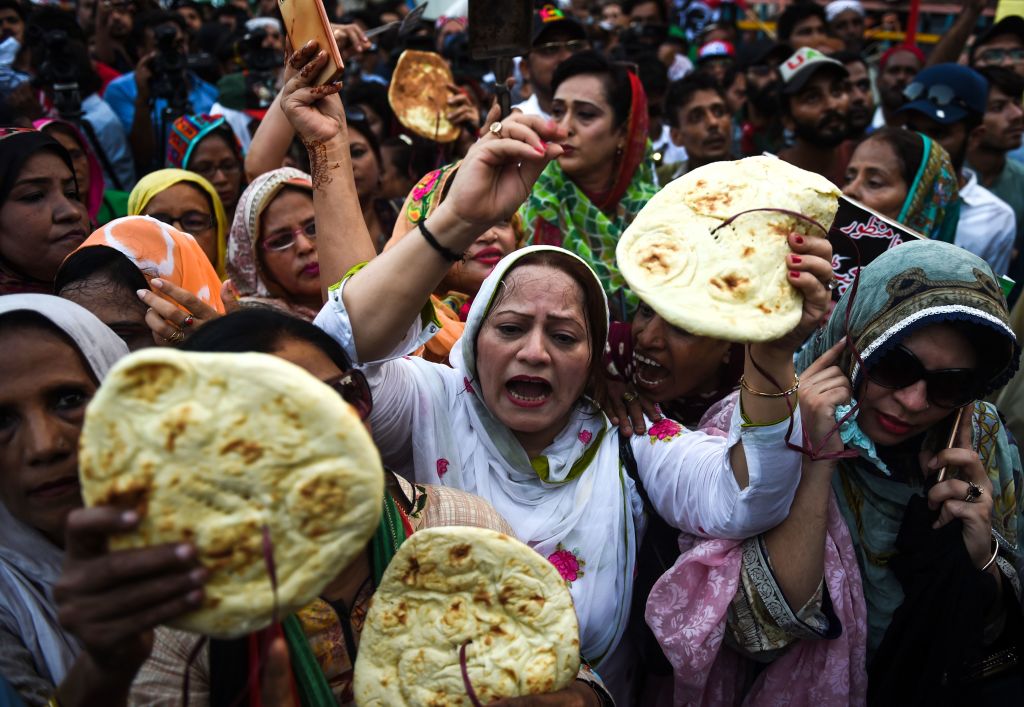- Monday, April 29, 2024
During PM Shehbaz Sharif’s previous term in office, he successfully negotiated a crucial agreement with the International Monetary Fund (IMF), but the process was beset with difficulties.

By: Anu Chauhan
PAKISTAN’S newly elected parliament has voted in Shehbaz Sharif as the prime minister for the second time, three weeks after uncertain national elections led to a coalition government.
The pressing concern at hand is whether the incoming government will be capable of resolving the economic turmoil, which the new premier has vowed to address and bring the country’s progress back on track.
During Sharif’s previous term in office (2022-23), he successfully negotiated a crucial agreement with the International Monetary Fund (IMF), but the process was beset with difficulties and the conditions mandated by the agreement have led to inflationary pressures and increased financial strain on the country’s low-income and middle-class households.
As things stand, the agreement is set to expire in April, leaving many wondering what the future holds for the country’s economy.
Read: Shehbaz Sharif becomes Pakistan PM, vows to guide nation ‘back to shore’
Pakistan is currently facing a severe economic crisis that has been ongoing since 2007. The country’s financial state is in dire straits, with debt levels soaring to unprecedented heights. In just two months, Pakistan is due to make a payment of US$1 billion, which has put further pressure on the country’s already strained economic situation.
The balance-of-payment deficit has led to a freeze on imports, which has had a significant impact on industrial growth. The situation has been compounded by a rising inflation rate that has now reached nearly 30 per cent.
Read: IMF backs new Pakistan programme, urges poll row resolution
The Pakistani rupee has been in freefall for the past three years, losing almost 50 per cent of its value since 2021. With the currency dropping to a record low in the past two years, forex plummeted, inflation soared, and unemployment rose (8.5 per cent in 2023), adding to the economic challenges for the country which now requires careful and strategic planning.
The current political scenario is marked by uncertainty and indecisiveness due to the post-election results. This situation could further exacerbate the already existing economic challenges, especially due to the delay in forming a stable government.
However, with the recent alliance of the Pakistan Muslim League – Nawaz (PML-N) and Pakistan Peoples Party (PPP), the new government policies would play a crucial role in addressing the economic woes.
The success of these policies would depend on various factors, including structural reforms, fiscal discipline, and attraction of foreign investment. The new government will have to re-enter negotiation and take quick action.
Pakistan could still see a problem of consensus arising in its coalition government over policy adjustment required by the IMF. The country’s former prime minister, Imran Khan, who was jailed months before the election over corruption charges and barred from contesting along with his Pakistan Tehreek-e-Insaf party, urged the IMF to link its economic assistance to Pakistan with an audit of the February 8 polls which the lender refused saying it does not comment on domestic political developments.
Besides, the role of the Pakistani Army will also be key since it remains the country’s most influential institution.
The new government of Pakistan should avoid pushing for populist policies and prioritise economic decisions over politics
Anu Chauhan is an intern at a Policy, Politics and Government Foundation.
![]()